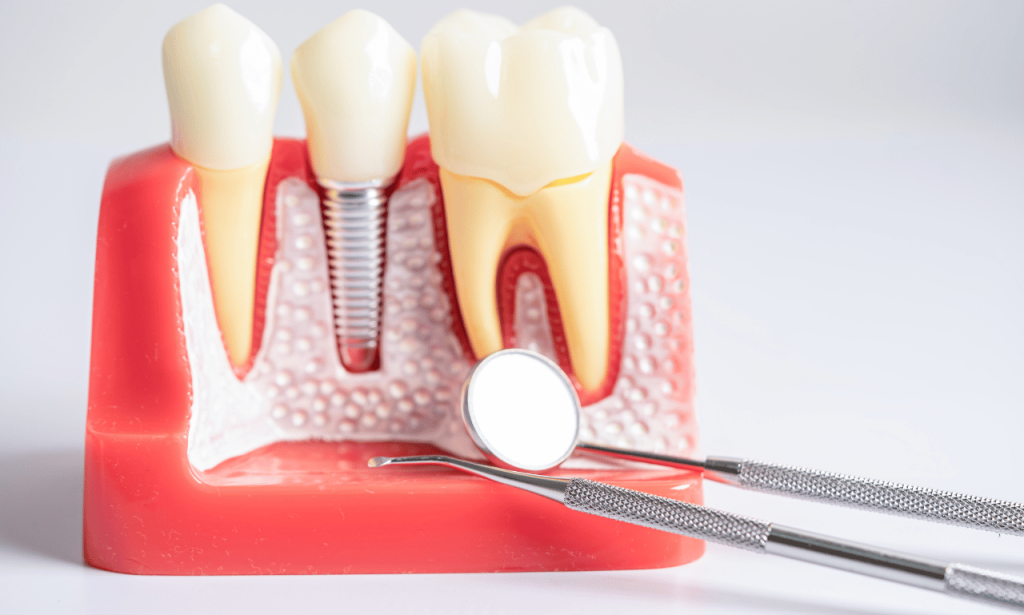Root canal therapy is often necessary to save a natural tooth from further damage or decay. However, many people experience pain or discomfort during and after the procedure, raising concerns about how long root canal pain lasts and the best ways to manage it.
Let’s go deep into the root canal procedure, discussing its duration, the amount of pain expected, and essential tips to maintain good oral hygiene during the recovery period.
If you’re looking for a way to support your oral health with natural supplements, visit ProDentim, a product designed to enhance dental health.
What Is a Root Canal Procedure?

A root canal procedure is a common dental treatment designed to repair and save a severely damaged or infected tooth rather than remove it. This dental procedure involves removing the infected pulp, cleaning and disinfecting the inside of the tooth, and then sealing it.
The infected pulp contains blood vessels, nerve endings, and connective tissue that help nourish the tooth during its development. When bacteria penetrate the pulp through tooth decay, a cracked tooth, or tooth trauma, it can cause significant pain and swelling.
Root canal therapy usually requires a local anesthetic to numb the area around the affected tooth during the procedure. The dentist makes a small opening in the crown of the tooth to access the pulp chamber of the tooth and remove the infected pulp and surrounding tissue damage.
Once the cleaning process is complete, the dentist seals the canals of your tooth to prevent further infections and places a dental crown to protect the tooth from damage.
Understanding the Amount of Pain Associated with Root Canal Treatment

Many people wonder, “Does a root canal hurt?” The answer depends on several factors, including the severity of the tooth infection and the patient’s pain tolerance. Typically, during the treatment process, a local anesthetic is used to numb the area, so there is usually little pain during the procedure itself. Most patients experience mild discomfort at most.
However, after the local anesthesia wears off, it’s normal to feel some discomfort, which can range from minor pain to intense pain in more severe cases. The discomfort is a temporary side effect of the body’s healing process as the surrounding soft tissue and nerve endings recover from the procedure.
How Long Does Root Canal Pain Last?

Post-procedure root canal pain typically lasts a few days to a week. In most cases, patients experience mild pain that gradually subsides as the healing process progresses. The discomfort can usually be managed with counter-pain medications like ibuprofen or acetaminophen, which help reduce pain-relieving measures such as inflammation.
If you experience intense pain or if tooth pain increases days after the procedure, it could be a sign of root canal infection, an incomplete root canal, or further complications such as a high temporary filling or issues with the surrounding tissue. In rare instances, an infected root canal can cause severe nerve root damage or lead to an allergic reaction. It’s crucial to contact your dentist immediately if the pain persists or worsens after a week.
Why Does a Root Canal Hurt?

Although the goal of the root canal is to remove the infected pulp and alleviate pain, some discomfort is inevitable as the body heals. Here are some reasons you might experience pain after a root canal:
- Inflammation of the Surrounding Nerves: The cleaning and removal of the tooth pulp and infected tissue can irritate the surrounding nerves, leading to mild swelling and pain. This is a common part of the recovery period.
- Temporary Tissue Damage: The dentist must clean out the canals inside the tooth, which can cause slight trauma to the surrounding tissue and result in soreness. This typically subsides within a few days.
- Tooth Trauma from the Procedure: The procedure can stress the affected tooth, causing mild discomfort as the blood flow returns to normal levels.
- High Temporary Filling: Sometimes, the temporary filling placed after a root canal may be too high, causing bite misalignment and discomfort. This can be easily fixed by the dentist.
- Incomplete Cleaning of the Canals: In rare cases, if the cleaning wasn’t thorough, bacteria may remain inside the tooth, leading to a root canal infection that requires additional treatment.
Pain Management After a Root Canal Procedure

After a root canal, it’s essential to follow the dentist’s instructions for proper care to reduce discomfort and prevent complications. Here are some effective pain-relieving measures:
- Over-the-Counter Pain Relievers: Medications like ibuprofen and acetaminophen are commonly used to manage post-procedure discomfort. If the pain is more severe, the dentist may prescribe prescription pain relievers for a short period.
- Cold Compresses: Applying an ice pack to the affected area for 10-15 minutes can help reduce swelling and numb the pain. Cold temperatures are effective at soothing inflammation.
- Warm Salt Water Rinse: Gently rinsing with warm salt water can keep the treated tooth clean and promote healing. Salt water helps reduce bacteria and soothes the soft tissue around the tooth.
- Stress-Relieving Activities: Practices like tai chi, yoga, and deep breathing exercises can reduce overall stress and help manage the pain during recovery.
- Avoid Hard or Crunchy Foods: To protect the treated tooth and minimize pain, stick to soft foods during the first few days after the procedure. Avoid eating hard foods or crunchy foods that can irritate the affected tooth.
- Follow-Up Visit: It’s essential to attend your follow-up appointment so your dentist can check the progress of your healing process and address any concerns, such as persistent pain or swelling.
What if Root Canal Pain Persists?

In most cases, post-root canal pain will subside after a week or so. However, if you experience persistent pain or worsening symptoms, it’s essential to consult your dentist. This could indicate:
- Root Canal Infection: If bacteria remain inside the tooth, the infection could spread and cause ongoing pain. Additional treatment or further cleaning of the canals may be necessary.
- Incomplete Root Canal: Occasionally, a root canal may not fully clean the inside of the tooth, leading to continued discomfort. The dentist may need to perform a retreatment to resolve the issue.
- Nerve Damage or Tissue Trauma: In severe cases, the procedure may damage the nerve root or surrounding tissues, causing prolonged pain. This requires prompt dental attention.
- High Temporary Filling or Dental Crown Issues: If the temporary filling or dental crown is causing bite issues or pain, your dentist can adjust or replace it.
- Failed Root Canal: A small percentage of root canals can fail due to improper sealing or further tooth decay. In this case, the dentist may need to perform an additional cleaning of the canals or even recommend a tooth extraction or dental implant.
Benefits of Root Canal Treatment

Despite the temporary discomfort associated with root canals, the benefits of the procedure far outweigh the pain. A successful root canal can:
- Save your natural tooth and prevent the need for a tooth extraction.
- Eliminate severe tooth infection and stop the spread of bacteria to other parts of the mouth or body.
- Restore the functionality of the treated tooth, allowing you to eat normally once the tooth has healed.
- Relieve severe pain and discomfort caused by an infected tooth or diseased pulp.
The Healing Process and What to Expect

The healing process after a root canal varies from person to person, but most people find that their pain subsides within a few days to a week. The dentist may recommend additional care, such as placing a permanent dental crown over the tooth to protect it from damage.
Practicing good oral hygiene is essential to ensure long-term success after the procedure. Brush and floss regularly, and attend dental checkups to maintain the health of your treated tooth and surrounding teeth.
Final Thoughts
Experiencing some pain after a root canal is completely normal, but it typically lasts only a few days. The key to a smooth recovery is managing the discomfort. With counter pain relievers, cold compresses, and soft foods while following your dentist’s aftercare instructions. If your root canal pain persists or worsens, don’t hesitate to contact your dentist for further evaluation.
Root canal therapy, despite the temporary discomfort, can effectively save a tooth and restore your oral health. For additional support in maintaining good oral hygiene, consider exploring natural oral supplements like ProDentim, which can aid in promoting healthy gums and teeth.
By taking proper care of your teeth and following the dentist’s advice, you can ensure a smooth recovery and reduce the chances of future complications.


